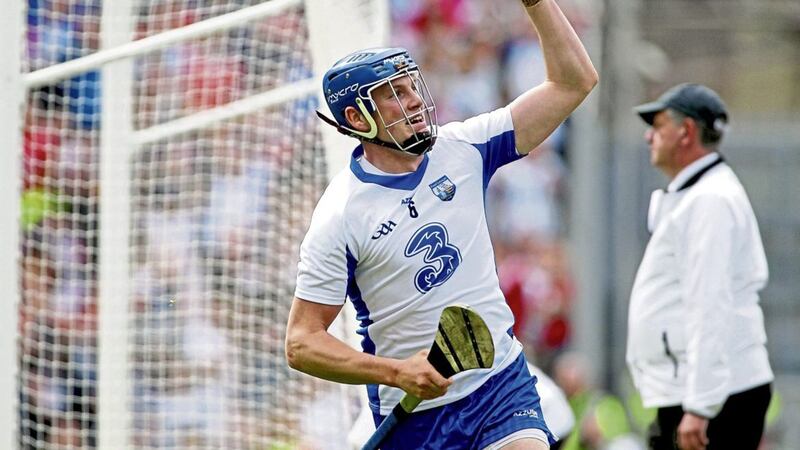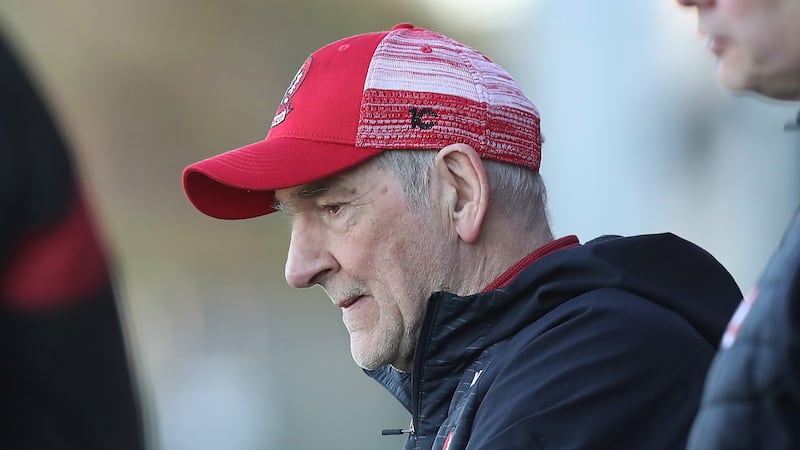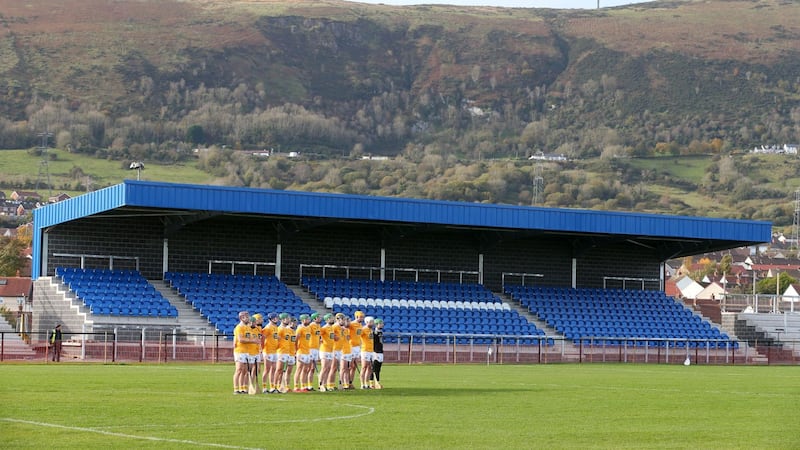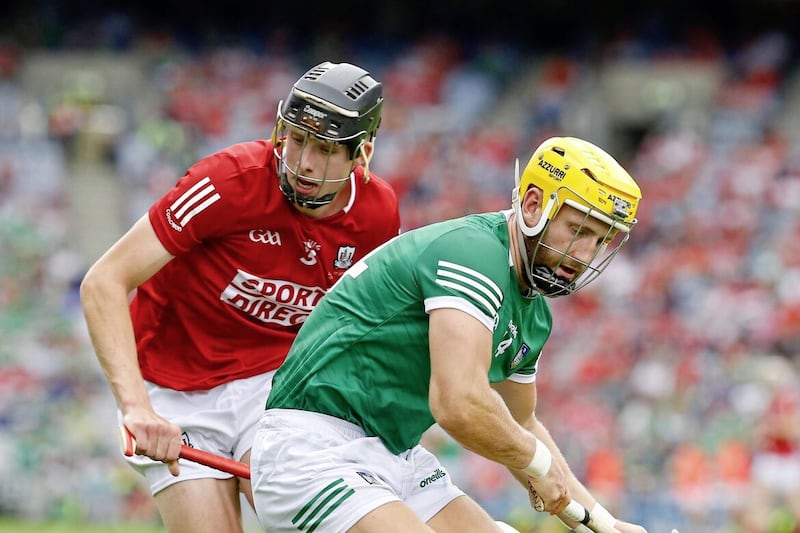TEAMS representing their local areas, dressed in garishly coloured costumes, controlling balls with lengths of wood, battling uphill with opponents trying to stop them by various means, perhaps including squirting water at them.
Yep, that was the traditional entertainment we knew and loved called 'It's a Knockout', not this new-fangled hurling championship they're bringing in next year.
In fact, as far as hurling is concerned, it's not a knockout any longer, at least not in the early stages of its inter-county Championships.
The worry for some is that the GAA has played its 'Joker' but that the new format will not turn out to be a winning trick.
Hurling aficionados always argue that their game is ahead of everything else, certainly ahead of Gaelic football, and they're right in this regard at least.
Just as hurling was the first to create a 'back door' in its senior inter-county championship, it's also the first to introduce a round robin system.
Well, arguably football actually introduced its first, but the hurling variant will take place first, with the newly grouped Leinster and Munster SHCs taking place before football's 'Super Eight' kicks, or throws, in.
It will be interesting to see how the respective formats go down, with hurling getting its round robin out of the way early on, but football saving it for what used to be its quarter-final stage.
The knockout element has always been key to the GAA, the idea of 'win or bust'.
Whereas soccer's champions (domestically at least) are their league toppers, with the knockout competitions (Cups) increasingly diminished in status, the GAA has always valued its knockout competitions (Championships) over its leagues.
That changed a little when hurling gave another go to the beaten Leinster and Munster finalists from 1997 onwards, and also in football from 2001 with the introduction of the All-Ireland qualifiers system.
It was hard enough for traditionalists to accept teams getting a second chance in Championship; now a county could conceivably lose THREE group games and still go on to win the All-Ireland.
That would entail finishing third in their provincial section on scoring difference and then winning an All-Ireland preliminary quarter-final, quarter-final, semi-final, and final. Unlikely, but not impossible.
Conversely, a county could win six out of seven matches and not even reach the All-Ireland Final; they might win all their round robin games and their provincial final but fall at the All-Ireland semi-final stage.
That's one downside of a 'round robin' format.
Football could have tried out its own 'round robin' system long ago, at the start of this millennium, but the proposals of the Football Development Committee (FDC) were withdrawn at Annual Congress in 2000. Instead, a Special Congress in October of that year brought in the football qualifiers.
The FDC proposed ending the National Football League and creating a new 'super championship', or League Championship. This would have placed the top seven teams in Ulster and the top four from Connacht into one 'northern' section. The top seven in Leinster and top four from Munster would have formed the 'southern' section.
After 10 rounds of games, the top four sides from Leinster and Ulster would have played off their provincial semi-finals; the top two from Connacht and Munster would have done likewise.
The other 11 'counties', including London and New York, would have been involved in an All-Ireland 'B' Championship, with the winners of that being promoted to the premier competition.
Games would have taken place in March-June, following by the provincial matches, then the All-Ireland semi-finals and final in their usual time-frame.
Depending on how hurling's round robin goes, and how much the so-called 'Super Eight' increases the gap between footballs 'haves' and 'have-nots', the FDC format might find favour again in the near future.
As with football's 'Super Eight', more matches in hurling won't necessarily mean better matches – although it might.
The permutations and combinations in Munster are great – in purely alphabetical order you have Clare-Cork, Clare-Limerick, Clare-Tipperary, Clare-Waterford, Cork-Limerick, Cork-Tipp, Cork-Waterford, Limerick-Tipp, Limerick-Waterford, and Tipp-Waterford.
Yet Leinster is less appealing: Galway-Kilkenny and Kilkenny-Wexford will grab the attention, perhaps Galway-Wexford, but the matches involving Dublin and Offaly don't excite, at least not at this stage, due to the current level of those counties.
One-off shock results may become less likely, or definitely less meaningful in the greater scheme of things.
There is an understandable fear of seeing more 'dead rubbers' – but there have been many one-sided games in the football qualifiers anyway, and even in recent football quarter-finals.
Hurling's new format protects the Munster championship but further erodes the Leinster version, bringing it down to five participants, and only four actually from the province. There were still 10 counties competing in the eastern province as recently as 2004, and seven (plus Galway and Kerry) in the past few seasons.
Football probably only has one province worth maintaining, Ulster, although Connacht might put forward a case, given the recent triumphs by Roscommon and Galway to challenge Mayo's dominance.
The FDC format would have removed some of the inequalities in the provincial systems and meant more matches for all counties, not just the top eight.
Clubs already have to deal with a minimum of nine inter-county matches (seven in the National Football League, at least two in the Championship) as it is.
However, although the minimum number of games would only increase to 10, clubs would surely balk at the time-frame, which simply wouldn't be workable in the current climate given the strength of the Club Players' Association.
Equally, counties wouldn't relish a compromise of playing potentially important Championship games as early as February, especially if April is to be kept free for club matches.
For the meantime, the GAA will continue with League and Championship, even if the Championship is becoming more of a League – and could become almost a 'Champions League'.
At least hurling's Championship will now be in five tiers, reflecting the respective abilities of counties.
Football, though, will continue to have only one level – and that really is as farcical a competition as 'It's a Knockout' was.








